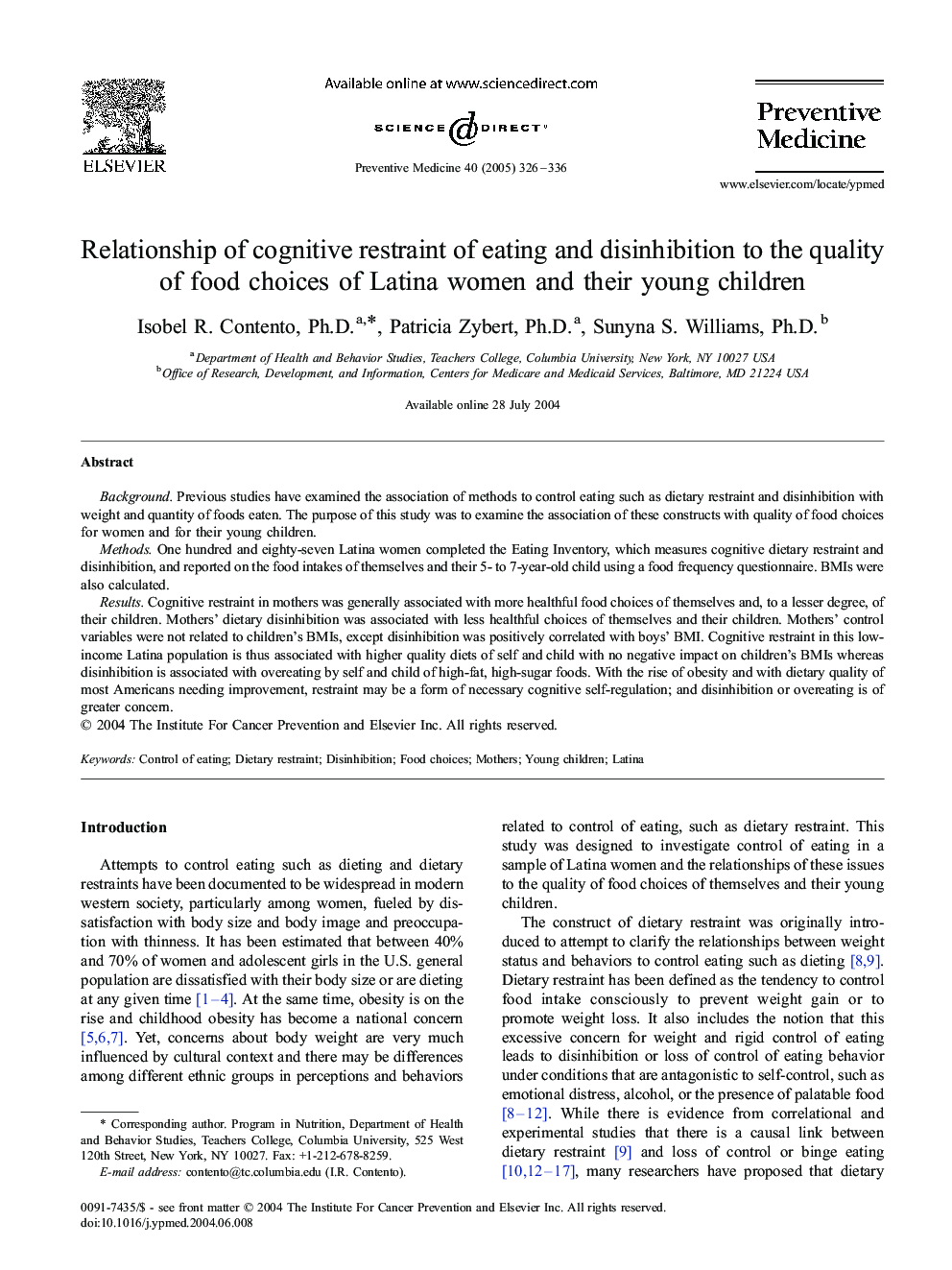| Article ID | Journal | Published Year | Pages | File Type |
|---|---|---|---|---|
| 9206344 | Preventive Medicine | 2005 | 11 Pages |
Abstract
Results. Cognitive restraint in mothers was generally associated with more healthful food choices of themselves and, to a lesser degree, of their children. Mothers' dietary disinhibition was associated with less healthful choices of themselves and their children. Mothers' control variables were not related to children's BMIs, except disinhibition was positively correlated with boys' BMI. Cognitive restraint in this low-income Latina population is thus associated with higher quality diets of self and child with no negative impact on children's BMIs whereas disinhibition is associated with overeating by self and child of high-fat, high-sugar foods. With the rise of obesity and with dietary quality of most Americans needing improvement, restraint may be a form of necessary cognitive self-regulation; and disinhibition or overeating is of greater concern.
Related Topics
Health Sciences
Medicine and Dentistry
Complementary and Alternative Medicine
Authors
Isobel R. Ph.D., Patricia Ph.D., Sunyna S. Ph.D.,
